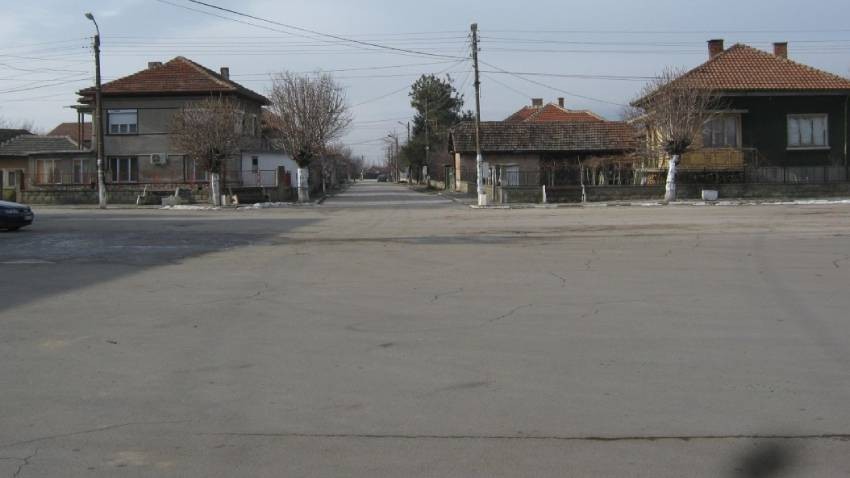Bulgaria has been, and is continuing to lose its population, and not only because of low birth rate, but also because many people leave the country to seek their fortunes elsewhere.
In the past decade, the country has registered the biggest drop in population in its modern history – 850,000 people or 11.5% of its population. According to National Statistical Institute data, the population of Bulgaria now stands at over 6.5 million people, and in the space of just one year, the country has lost 35,000 of them. What is more, the country is also top of the list in Europe’s negative population decline statistics. 
The tendency is growing stronger, the future is looking bleaker, and unless radical measures are taken, the process will become irreversible, specialists say. And even though we have a demographic strategy, developed in 2012 with a horizon up until 2030, it is in fact a hollow document, says Valentin Suykov, chairman of the Civic Initiative Bulgaria 2050 association. He says what is needed is a comprehensive reform in all spheres of public and economic life, and first and foremost in the economy:
“Without accelerated economic growth that will pull Bulgaria up, in the space of a decade, to the level of the average European indicators of basic criteria such as gross national product, productivity of labour, average incomes, we cannot expect a turnaround of the demographic tendency,” Valentin Suykov goes on to say. “But to reach the European level within in the space of ten years, we need to have a growth rate of 7-8%. 500,000 of the 850,000 people the country has lost in the past decade are due to negative growth rate, the remaining 350,000 have emigrated to seek their fortunes in other countries. So that the migration processes can only be stopped if people have incomes comparable to the European standard of living.”
92% of people in Bulgaria, aged 18-35, say they see their future in Bulgaria, indicates a representative survey by JTN Research. At the same time the young say they will not agree to a starting monthly salary of less than 1,600 Leva (EUR 818), and a subsequent salary of 2,300 Leva (EUR 1,173). 49% of the respondents say that if there is an adequate job available, they are ready to return to their place of birth immediately. A great many of them regard Bulgaria as part of the EU.
“The barrier that many people from the middle generations have – about here and there – is not something the young are concerned with at all,” Danyo Dimitrov, managing director of the company which conducted the survey, comments in an interview with the BNR. “The labour market shortage is becoming more and more evident,” the analyst says and adds that this is the reason why more than two-thirds of the young people who took part in the survey say they are investing their own money in additional qualification.
But economic reform alone will not be enough to keep them in the country – the widespread corruption, the injustices, the quality of education, the sense of a lack of perspective have pushed many to emigrate.
“We are going to continue to lose young people because for decades Bulgaria has not had a national ideal,” says Valentin Suykov. “We do not have a unifying idea to guide us, a target to pursue as a nation. Our task – as an association is to develop a Bulgarian national doctrine, and by applying it, to seek a comprehensive solution to the problems politicians have been unable to address for decades.”
An anthropological desert – that is how demography experts describe the regions where the infrastructure has been preserved but where there are not enough people. Unfortunately, unless steps are taken, that is the kind of future the Northwestern region of Vidin – where one one-third of the population is over the age of 65 - is looking at. Here too, the focus is on regional policy for preventing a demographic catastrophe.
“If the companies that are not only registered, but are also operating on the territory of the region are exempt of profit tax and are eligible for preferences when applying for modernization, that would yield a positive result,” says the Vice President of the National Assembly Rositsa Kirova. “That would create jobs, but it would also preserve the jobs now in existence, especially if not paying the tax is bound by an obligation by the company to continue to operate for a minimum of 10 years, and to hire at least one new worker a year throughout this period. But, most importantly, there has to be a road infrastructure in place, so that the goods manufactured are able to reach the market, and also state support should be sought for this region which has been ailing for such a long time.”
Whatever politicians may say, the most accurate barometer of public attitudes are the people who have to bear the brunt of what people in power have been doing – or not doing. Here is what people in Vidin say:
“My son is in Sofia, there is no work here. He is a medical specialist. The hospital is dying, the salaries are meagre. Who’s going to come here?”
“There used to be 60,000 living in the town, now maybe less than half of them have remained,” says a woman from Vidin. A man from the same city adds:
“Pensioners, civil servants, police – and that is all there is.”
Are the young ever going to return?
“Never,” one local is adamant, and another one adds: “The young will never come back. There has to be work, decent salaries, because I’ve been hearing here and there of salaries being offered that are definitely not enough to make ends meet, let alone think of any kind of future. I see nothing moving forward – if any company comes to the town, in time it throws in the towel and moves its business to Romania or to some other big city.”
“Yet Vidin is such a beautiful city,” an elderly lady says sadly. “A river like ours, a park like ours – I’m not sure there is anything like them anywhere else in Bulgaria. There is so much space here, everything is so green, there is peace and quiet. But when there are no jobs to be had – what can you do?”
Interviews by Angela Kamenova and Isabel Borisova, BNR-Vidin, Tanya Milusheva, Horizont channel, BNR
Text: Diana Tsankova
Translated and posted by Milena Daynova
Photos: BGNES, BNR-Vidin
The Bulgarian minority in Romania marked a significant event with the official opening of the Bulgarian Inn in the village of Izvoarele (Hanul Bilgarilor), Teleorman County (Southern Romania)- a locality with Bulgarian roots dating back over 200 years...
The 14th edition of DiVino.Taste, Bulgaria’s leading forum for wines and winemakers, will take place from 28 to 30 November at the Inter Expo Centre in Sofia. Over 80 producers from all wine regions will participate, offering tastings of around 600 of the..
Minutes before the second and final reading, at the parliamentary budget and finance committee, of the state budget for 2026, the leader of the biggest party represented in parliament GERB Boyko Borissov halted the procedure and sent the draft bill..

+359 2 9336 661
